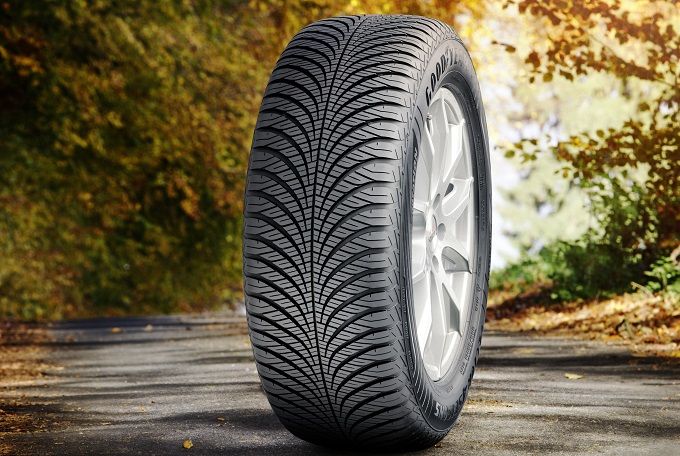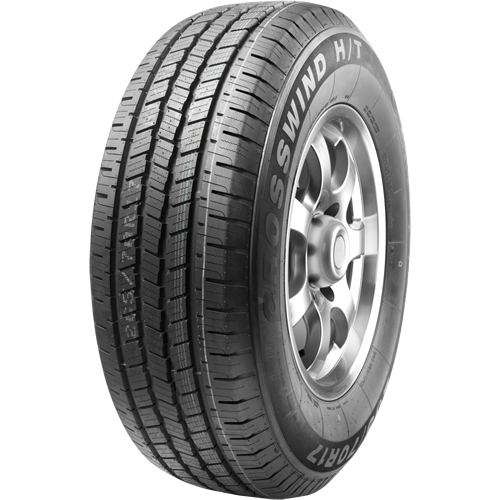Yes, all-season tyres can be worth it for many drivers. They offer versatility, handling various weather conditions well.
But, they may not be perfect for extreme climates. All-season tyres are designed for year-round use. They handle dry roads, rain, and light snow. This makes them a popular choice for drivers who don’t want to switch tyres with each season.
Their balanced performance offers convenience and can save money over time. However, if you live in areas with harsh winters or scorching summers, these tyres might not be ideal. Specialized tyres could offer better safety and performance in extreme conditions. Understanding your driving environment is key to deciding if all-season tyres are the right fit for you. Let’s dive deeper into their benefits and potential drawbacks.

All Season Tyres Explained
All season tyres are special. They work in different weather. These tyres have unique tread patterns. The tread helps in rain and light snow. Rubber compounds in these tyres are flexible. This helps them grip well on wet and dry roads. All season tyres are a middle ground. They are not for extreme cold or hot. They are a good choice for mild weather. Easy for people who want one set of tyres all year.
All season tyres offer balanced performance. They provide good traction on wet roads. In light snow, they perform better than summer tyres. But, they are not as good as winter tyres. These tyres have decent fuel efficiency. They don’t wear out quickly. This makes them cost-effective. Perfect for drivers in regions with mild weather changes.
Pros Of All Season Tyres
All season tyres perform well in different weather. These tyres work in sun, rain, and light snow. They offer good grip on dry and wet roads. No need to change tyres with each season. A safe option for mild climates. Many drivers choose them for their ease. They suit most driving needs. Not the best for extreme winter or summer. But for general conditions, they are reliable.
Cost-saving is a big benefit. No need for two sets of tyres. Save money on buying and storing tyres. Fewer tyre changes mean less expense. They last longer than winter tyres in mild weather. Good value for those on a budget. Maintenance is also simpler. One tyre set fits all year. Just check air and tread regularly. A smart choice for everyday use.
Cons Of All Season Tyres
All season tyres do not excel in any one area. They offer average grip in both summer and winter. In cold weather, they may slip more on icy roads. In hot weather, they may wear down faster. This means your car might not stop as quickly. This can be risky in emergencies.
These tyres are designed for all seasons. But they lack the expertise of winter or summer tyres. Winter tyres work best on snow and ice. Summer tyres provide better grip on dry roads. All season tyres try to do both. But they can’t match the best of either.
Comparing Tyre Types
All season tyres work in different weather conditions. They handle rain, sun, and light snow. Summer tyres excel in warm weather. They grip roads well and offer better speed. All season tyres often last longer. Summer tyres may wear out quicker. Choose tyres based on your area’s climate. All season tyres provide convenience year-round. Summer tyres need switching in cold months.
Winter tyres are made for cold and snowy roads. They grip ice better. All season tyres manage mild winter conditions. Winter tyres use special rubber for cold. All season tyres have harder rubber. Winter tyres offer safety in snowstorms. All season tyres might slip in severe cold. Winter tyres mean switching when seasons change. All season tyres stay on all year.
Cost Analysis
Are all-season tyres worth the cost? Comparing them to seasonal tyres, they offer convenience and year-round usability. While initial costs might be higher, savings on tyre changes and storage could balance expenses over time.
Initial Purchase Price
All season tyres can cost more than regular tyres. These tyres are made for all weather. This makes them special. Some people find the price high. But they are convenient. You do not need to change tyres every season.
Long-term Savings
Buying all season tyres can save money over time. You do not need to store extra tyres. Fewer tyre changes mean less cost. All season tyres last longer than regular tyres. This means you save more in the long run. They work well in different weather. This means fewer trips to the tyre shop.

Safety Considerations
All season tyres offer good grip on wet roads. They work well in mild winter conditions. But, snow and ice can be tricky. Summer tyres might not handle cold as well. For snow, winter tyres are better. They have special patterns for icy roads.
Stopping distance is vital. All season tyres perform well in rain. But, they may slide on ice. Stopping quickly is crucial in emergencies. Winter tyres stop faster on icy roads. In warm weather, all season tyres stop smoothly. Choosing the right tyre helps keep you safe.
Environmental Impact
All season tyres can affect fuel use. These tyres have a special design. This design gives a balance between grip and rolling. Better grip can mean more fuel is needed. But, some all season tyres are made to save fuel. They have a low rolling resistance. This can help cars use less fuel. Choosing the right tyre is important for saving fuel. It helps the environment too.
Materials in tyres matter a lot. Many tyres use rubber, metal, and chemicals. Some tyres use recycled materials. This is better for the Earth. Tyres with sustainable materials last longer. They create less waste. Picking tyres with eco-friendly materials helps the planet. It keeps our world cleaner and healthier.

Consumer Reviews
Many drivers like all season tyres. They find them useful for all weather. People say these tyres give good grip. They feel safe on wet roads. Some say their car rides smoother. They enjoy the quiet drive. Most reviews are positive. These tyres make driving easy.
Some drivers feel all season tyres wear out fast. They worry about their durability. Others think they cost too much. In snow, some say they slip. They miss the grip of winter tyres. People want better performance in cold weather. They hope for stronger tread.
Frequently Asked Questions
Is It Worth Getting All Season Tires?
All-season tires offer versatility for various weather conditions. They provide decent performance in both wet and dry conditions. Ideal for areas with mild winters, they eliminate the need for seasonal tire changes. Consider them if you want convenience and balanced performance without extreme weather specialization.
Is It Better To Buy All Season Tyres?
All-season tires offer versatility for various weather conditions, making them a convenient choice for many drivers. They perform well in moderate climates, reducing the need for seasonal tire changes. However, they might not provide optimal performance in extreme weather conditions like heavy snow or ice.
What Is The Disadvantage Of All Season Tires?
All-season tires offer average performance in various conditions but lack specialization. They provide less traction in extreme weather, like heavy snow or ice, compared to dedicated winter tires. In hot conditions, they may wear out faster and deliver less grip than summer tires, impacting overall driving performance.
Are All Season Tires Ok For Winter Driving?
All-season tires are acceptable for mild winter conditions. They lack the grip of dedicated winter tires on ice and snow. For harsh winters, consider using winter tires for better safety and performance. Always assess your local weather conditions before deciding on tire type.
Conclusion
All-season tyres offer convenience and versatility for many drivers. They perform well in mild weather conditions, providing a good balance for everyday use. Ideal for those living in regions with moderate climates. You might save money by avoiding seasonal tyre changes.
But they may not be the best in extreme weather. Snow and heavy rain can challenge their limits. Consider your specific driving needs and local climate. This helps in making an informed decision. All-season tyres can be a practical choice, but assess your unique situation first.
Safe driving always depends on the right tyre choice.
